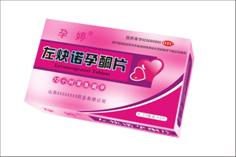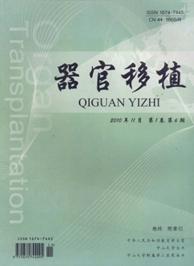字号: 默认 大 中 小
一、知识概述
1.学习和掌握本单元出现的生单词、词组和句型。
2.学习和掌握一般过去时的被动语态用法。
3.能用一般过去时的被动语态谈论物品是何时被发明的;听懂相关的听力对话和文章;培养口语交际能力和写作能力;了解茶的历史以及篮球这一运动的起源和发展。
二、单元重难点解析
1.20世纪的伟大发明:

1901年无线电 wireless 1903年飞机 plane

1907年塑料 plastic 1923年电视机 TV set

1928年青霉素 penicillin 1942年核武器 nuclear weapon

1943年计算机 computer 1953年DNA DNA(deoxyribose nucleic acid)

1954年避孕药 contraceptive 1957年人造卫星 artificial satellite

1967年器官移植 organ transplantation 1978年试管婴儿 test-tube baby
2.I think the TV was invented before the car.
我认为电视是在小汽车之前被发明的。
(1)was invented意为“被发明”,此结构为一般过去时的被动语态。一般过去时的被动语态的构成为“was/were+及物动词的过去分词”。
e.g.The house was built in 1967.
这所房子是在1967年被建的。
These trees were planted last year.
这些树是去年被种植的。
When was telephone invented?
电话是什么时候被发明的?
(2)invent为及物动词,意为“发明”,指发明以前从未存在过的东西。
e.g.—Do you know who invented the light bulb?
你知道是谁发明了电灯泡吗?
—Edison.
爱迪生。
e.g.Edison, a great inventor, invented many great inventions during his life.
爱迪生,一个伟大的发明家,在他的一生中作出了许多伟大的发明。
3.Is it really such a great invention?
它真的是这么伟大的一项发明吗?
such为形容词,意为“这样的,如此的”,常用在句中作定语,其结构为“such(a/an)+adj.+n.”。
e.g.There’s no such thing as a free lunch.
世上没有免费的午餐这类的好事儿。
Why do you buy such expensive clothes?
你为什么买这么贵的衣服?
辨析:such与so
(1)such为形容词,后接名词或名词短语。
① such(a/an)+adj.+n.
② some/any/no…+such+n.
e.g.I have never seen such a beautiful place before.
我以前从未见过如此美丽的地方。
I’m sorry that I have no such books.
对不起我没有这样的书。
(2)so为副词,后接形容词或副词。
① so+adj./adv.或so+adj.+a/an+n.
② so many/much/few/little+n.
e.g.My father bought me so lovely a dog.
我的爸爸给我买了一只如此可爱的狗。
He has so many books in his room.
他的房间里有如此多的书。
注意:含有“so+adj.+a/an+n.”的句子,可与含有“such+a/an+adj.+n.”的句子进行同义句转换。
e.g.I have never read so interesting a book.
=I have never read such an interesting book.
我从未读过如此有趣的书。
4.Think about how often it’s used in our daily lives.
想想在我们的日常生活中它多久被用一次。
daily为形容词,意为“每日的,日常的”,用作lives的定语。
e.g.What is your daily work?
你的日常工作是什么?
拓展:
① daily还可作名词,意为“日报”。
e.g.People’s Daily 《人民日报》
China Daily 《中国日报》
② 与daily结构相似的词有:
weekly 每周的
monthly 每月的
yearly 每年的
5.Did you know that tea, the most popular drink in the world(after water),was invented by accident?
你知道茶这种在世界上最受欢迎的饮料(仅次于水),是偶然被发明的吗?
by accident意为“偶然地,意外地”。同义词组为by chance;反义词组为on purpose。
e.g.I met her by accident in a crowded bus.
我意外地在拥挤的公共汽车上遇见了她。
Our meeting in Paris was by accident.
我们在巴黎的见面是个巧合。
注意:by accident主要用作状语,有时也用作表语。
6.Many people believe that tea was first drank about 5, 000 years ago.
许多人认为在大约5 000年前茶首次被饮用。
(1)about为副词,意为“大约;差不多;附近;到处”。
e.g.It was a long flight and it took about fourteen hours.
时间真长,飞了大约14个小时。
He looked about, but didn’t find his lost book.
他四处寻找,但没有找到他丢失的书。
拓展:about介词,意为“关于”。
e.g.They are talking about a TV play.
他们正在谈论一部电视剧。
(2)ago副词,意为“……以前”。
e.g.It happened two days ago.
这件事发生在两天以前。
I met him a few minutes ago.
我在几分钟以前碰到了他。
辨析:ago与before
① ago指从此刻起,若干时间以前,通常与过去时连用。
e.g.Mr. Zhang went to Beijing a week ago.
一周前张先生去了北京。
② before指从那时起若干时间以前,通常与完成时、过去时等连用;还可用作前置词或连接词表时间,而ago则不能这样用。
e.g.He said that he had seen her two days before.
他说他两天前见到过她。(表示从她说话那时起两天前)
I’ve seen that film before.
我以前看过那部电影。
7.It is said that a Chinese ruler called Shen Nong was the first to discover tea as a drink.
据说一个名叫神农的中国统治者是第一个发现茶这种饮料的(人)。
(1)It is said that…意为“据说……;有人说……”。
e.g.It is said that wisdom is born with a man.
有人说智慧是与生俱来的。
It is said that there are wolves in this forest.
据说这片森林里有狼。
(2)call为动词,意为“把……叫做,称呼,为……取名”。
e.g.此句中called为过去分词,作后置定语,修饰a Chinese ruler,相当于named。过去分词作定语,则动词和所修饰的名词之间存在逻辑上的动宾关系。
e.g.I know the girl called Lisa.
我认识那个叫莉萨的女孩。
8.Some leaves from a tea plant fell into the water and remained there for some time.
一些叶子从茶树上落入这水里并在里面停留了一段时间。
(1)fall into意为“落入,陷入”。
e.g.He fell into the river suddenly.
他突然掉进河里了。
We played a trick on him and he fell right into it.
我们给他设了个圈套,他就中计了。
拓展:与fall相关的短语:
fall behind 落后
fall down 摔倒
fall off 掉下
fall asleep 入睡
(2)remain不及物动词,意为“剩下,停留;逗留”等。
e.g.A few pears remain on the trees.
树上还留有几个梨。
She remained in her office all afternoon.
她整个下午都呆在办公室里。
拓展:remain用作连系动词时,意为“保持;仍是”,后接形容词、名词、动词—ing形式或介词短语作表语。
e.g.The room remains cool all summer.
这个房间整个夏天都保持凉爽。
She remained sitting when they came in.
他们进来时,她仍然坐着。
(3)some time意为“一段时间”。
e.g.I will stay here for some time.
我要在这儿呆一段时间。
辨析:some time, sometimes, some times与sometime
① some time为名词短语,表示“一段时间”, 表示“一段时间”时,常常与延续性动词连用,对它提问用how long。
② sometimes为频度副词,意思是“有时”。 表示动作发生的不经常性,多与一般现在时连用,它可位于句首、句中或句末。
③ some times为名词短语,意思是“几次;几倍”。 其中time是可数名词,对它提问用how many times。
④ sometime为副词,表示“某时”, 表示某个不确切或不具体的时间,常用于过去时或将来时,对它提问用when。
e.g.I need some time to do my homework.
我需要一段时间来做作业。
She comes to visit us sometimes.
她有时来看望我们。
Lucy has been to Beijing some times.
露西去过北京几次了。
Jack will leave for America sometime next week.
杰克将在下周某个时间动身去美国。
记忆口诀:
分开“一段时间”(some time),相聚“某个时候”(sometime);
分开s是“倍;次”(some times),相聚s是“有时”(sometimes)。
9.It produced a nice smell so he tasted the brown water.
它发出一种香味。所以他尝了尝这种褐色的水。
(1)smell此处为名词,意为“气味”。smell还可用作连系动词,意为“闻起来……”。
e.g.It gives off a nice smell.
它散发出芳香的气味。
The flowers smell good.
这些花儿闻起来很香。
(2)taste此处为及物动词,意为“品尝”。
e.g.Let’s taste the soup.
让我们尝一下这汤。
拓展:
① taste还可作名词,意为“味道;品味”。
e.g.The food has different tastes.
这些食物有不同的味道。
② taste用作连系动词,意为“尝起来”,其后接形容词作表语。
e.g.These oranges taste nice.
这些橘子尝起来不错。
记忆类似taste的连系动词的歌诀:
一是(be),一感(feel),一保持(keep),
起来四个(look, sound, smell, taste),
好像(seem)变了仨(get, turn, become)。
10.A few thousand years later, Lu Yu, “the saint of tea”, mentioned Shen Nong in his book Cha Jing.
几千年以后,“茶圣”陆羽在他的书《茶经》中提到了神农。
(1)thousand数词,意为“千”。当表示“几千”时用“基数词+thousand”;如果thousand前为表示不确切数目的词,如a few,some,several等时,thousand也用原形。
e.g.There are two/several thousand students here.
这儿有两/几千名学生。
拓展:
① thousands of表示“数百;成百上千的”,这时thousand后面有“s”,且后面有介词of,但是不能与数词连用。
e.g.There are thousands of people in the company.
这家公司有数千人。
② 与thousand用法类似的词还有:hundred“百”,million“百万”,billion“十亿”。它们可以用来表示约数或准数。
(2) saint为名词,意为“圣人;圣徒”。
e.g.She is a real saint.
她是一个道德高尚的人。
11.It is believed that tea was brought to Korea and Japan during the 6th and 7th centuries.
人们认为在6世纪和7世纪期间。茶被带到了韩国和日本。
It is believed that…相当于People believe that…,意为“人们认为……”,其中it为形式主语,真正的主语是that引导的从句。类似的句型还有:
It is said that… 据说……
It is reported that… 据报道……
It’s known that… 众所周知……
It is supposed/thought that… 人们认为……
e.g.It is believed that it is well worth seeing.
人们认为它是很值得看的。
It is said that they have won the game.
据说他们赢得了那场比赛。
12.In England, tea didn't appear until around 1660, but in less than 100 years, it had become the national drink.
在英国,直到大约1660年茶才出现。但是在不到100年的时间里,它成为了全国性的饮品。
(1)not…until…意为“直到……才……”,主句的动词一般是非延续性动词,它所表示的动作直到until所表示的 时间才发生。until可作介词,其后接表示时间的名词;也可作连词,引导时间状语从句。until引导的状语从句可以放在句首,但till引导的状语从 句则不能。
e.g.She can’t leave until Friday.
直到星期五她才能离开。
You can’t leave until your work is finished.
直到你的工作完成你才能离开。
Until she told me about it, I hadn’t realized the thing was serious.
直到她告诉我,我才意识到那件事的严重性。
拓展:until在肯定句中的用法:
until用于肯定句,作“直到……为止”讲时,主句的谓语动词一般是延续性动词,表示主句动作一直延续到until所表示的时间为止。
e.g.He waits until the children are asleep.
他等着直到孩子们睡熟。
I shall stay here until twelve o'clock.
我将留在这里一直到12点钟。
(2)less than意为“少于”;其反义短语为more than,意为“超过;多于”。
e.g.He sleeps less than seven hours every night.
他每晚的睡眠时间不到7小时。
We live here for less than two years.
我们在这儿住了不到两年。
(3)national为形容词,意为“国家的;民族的”。是由名词nation“国家;民族”加后缀-al构成的。
e.g.The rose is the national flower of England.
玫瑰是英国国花。
The concert began with the national anthem.
音乐会以奏国歌开始。
13.The tea trade from China to Western countries took place in the 19th century.
从中国到西方国家的茶叶贸易出现在19世纪。
(1)take place意为“发生;出现”。常指有计划、有安排地“发生”。
e.g.The next meeting will take place on Thursday.
下次会议将在星期四举行。
Great changes have taken place in my hometown in the past ten years.
在过去的10年里我的家乡发生了巨大的变化。
(2)in the 19th century意为“在19世纪”,其中century为名词,意为“世纪;百年”。
e.g.I think advertising was highly developed in the twentieth century.
我认为广告业是在20世纪高度发展起来的。
注意:
①“在某世纪”要用介词in。
②在“第几世纪”中必须用序数词,而且应在序数词前加定冠词the。
③表达“……世纪……年代”时要用定冠词。
the 1870s意为“19世纪70年代”,读作the eighteen seventies。






